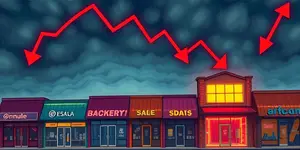
In recent years, the biotechnology sector has become a magnet for speculative investors seeking high rewards. The unique blend of scientific innovation and financial momentum makes biotech stocks especially appealing when markets are on the rise. As regulatory approvals flick on green lights and clinical trial data stoke optimism, speculative capital floods into companies promising breakthrough therapies.
This comprehensive article explores why speculative money seeks out biotech uptrends, how funding cycles evolve, the key catalysts driving valuations, and what risks lie ahead. By understanding these dynamics, investors can navigate the exciting yet volatile world of biotech with greater clarity.
Speculative capital refers to funds flowing into riskier assets, typically driven by momentum rather than long-term fundamentals. In biotech, this type of investment often hinges on binary events—regulatory decisions or pivotal clinical trial outcomes that can send share prices soaring or crashing overnight.
Unlike long-term investors who focus on stability, dividends, and gradual growth, speculative traders:
This behavior can create dramatic price swings, attracting even more capital as enthusiasm builds.
The biotechnology sector is synonymous with high volatility and dramatic price swings. Small- and mid-cap biotechs in particular can double or halve in value on a single clinical trial update or FDA approval. Such volatility is a siren call for speculative traders.
Key features that make biotech irresistible:
When a company with a promising pipeline announces strong data, speculative capital pours in, often creating a self-reinforcing cycle of buying pressure and further price appreciation.
The 2021 biotech boom was unprecedented. Venture capitalists poured in over $70.9 billion globally, while U.S. IPO proceeds topped $14 billion. By contrast, a sharp correction in 2022–2023 saw funding drop by 35–40%, shaking speculative confidence.
However, 2024 and early 2025 have shown a fragile recovery in investor sentiment. IPO activity rebounded—proceeds rose 37% year-on-year by mid-2024, and ten major deals launched in H1 2024 compared to sixteen in all of 2023.
Meanwhile, private biotech venture financing jumped 46% in Q1 2024 versus Q4 2023, signaling a mix of institutional and tactical speculative interest. The XBI ETF, a benchmark for small biotech stocks, also broke the $100 level for the first time in two years, underscoring renewed momentum.
Patient specialist capital, often overlooked during boom times, has re-entered the arena. These investors target undervalued assets dumped during the correction, setting the stage for further speculative inflows when binary catalysts emerge.
Biotech valuations hinge on a few pivotal factors:
Large pharmaceutical companies face approximately $300 billion in branded revenue losses as key patents expire. This looming patent cliff fuels acquisitive strategies and speculative bets on takeover candidates.
Speculative capital is especially drawn to companies with:
Certain subsectors command more speculative attention due to perceived high upside:
These areas often generate rapid share price surges on positive news, attracting momentum traders looking for the next big breakout.
While speculative capital fuels uptrends, it also exacerbates downturns. Sudden trial failures or stricter regulatory scrutiny can trigger swift sell-offs, often leaving leveraged positions underwater.
Regulatory bodies are increasingly attentive to gene therapy safety and AI ethics, raising the bar for approvals. Liquidity crunches in public markets can briefly halt speculative flows, though clear innovation tends to draw investors back quickly.
Looking ahead to 2025, the outlook remains one of cautious optimism among market participants. M&A activity is poised to stay robust, IPO windows will open selectively, and sentiment should remain improved compared to the 2022–2023 trough.
Investors should monitor upcoming mid-stage trial readouts, FDA advisory committee meetings, and major pharma partnership announcements. These events will drive the next waves of speculative capital into biotech stocks riding strong uptrends.
Biotech remains a fertile ground for speculative capital, thanks to its inherent volatility and the high stakes of scientific breakthroughs. Understanding the interplay between funding cycles, binary catalysts, and valuation drivers is essential for navigating this dynamic sector.
By focusing on companies with de-risked pipelines, validated science, and clear strategic roadmaps, investors can better position themselves to capture potential gains. Yet, the specter of rapid corrections underscores the importance of risk management and disciplined entry points.
As we move further into 2025, the biotech landscape will continue to evolve. For those ready to embrace both the promise and peril, uptrends in biotech stocks offer compelling opportunities—anchored in innovation and powered by speculative excitement.
References













